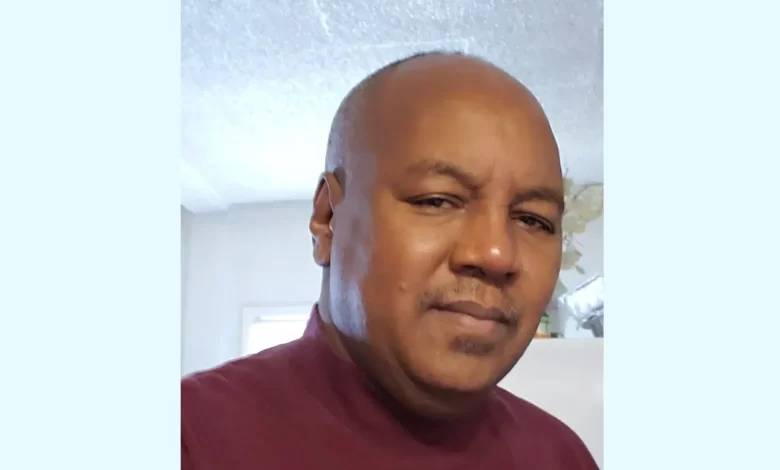Deconstructing and Critiquing the Saying
One Army - One People

Ahmed Mahmoud
The authority, by its nature, confiscates the rights of others and has the ability to speak on their behalf, whether they are alive or dead. This is what we notice throughout the course of this war, where a superficial slogan emerged, (One Army – One People), to cover up the crimes of the de facto authority that doesn’t have any legitimacy allowing it to speak on behalf of the people and to put forward a misleading and false slogan that tells tales about the existence of one Army, with a unified public backing this Army. This slogan lacks accuracy and meaning, for its a result of the following reasons:
First: The Army itself isn’t one or unified, as there is fighting within its ranks, if we consider the Rapid Support Forces part of the Army.
Rather, they were, as the Rapid Support Forces formed an integral part of the Army and acquired all its characteristics of organization, training, and ranking, in addition to being under its care until mere days before the war ignited.
The Army leaders insist on stating throughout the course of this war that the Rapid Support Forces are rebellious forces, and this indicates that the Rapid Support Forces have left the Army and rebelled against it in this war. According to the Military’s statement, we have two armed armies fighting each other.
In addition, the Army, throughout its long (legal) relationship with the Rapid Support Forces, which was engineered by the previous regime, has delegated hundreds of regular officers and commanders to train or supervise the Rapid Support Forces, and the majority of them haven’t returned to the Armed Forces, they’re the ones who lead and plan the battles through which the Rapid Support Forces advance. Hence, they’re not included in the slogan that tells about the unity of the Army, that is, they are ‘Dissident Forces’.
There are leaders and large groups that have defected from the Army during this war to the Rapid Support Forces, the last of whom was Brig. Gen. Omar Hamdan Al-Basha Musa, batch (36). These defectors from the Army are continuously destroying the idea or slogan of ‘One Army’ that is repeated unconsciously, as numerous groups’ defection from the Army eludes to the existence of a far more significant problem within the Army ranks, caused primarily by the control of the Islamic Movement over its leadership.
Moreover, the soldiers fleeing the battles or withdrawing, disobeying the leadership orders, and some of whom went to neighboring countries. Therefore, the Army in this sense isn’t a single, unified Army, but rather a fragmented Army fighting within its ranks and each passing day, a number of soldiers defect, not to mention the reality of the middle leadership and individual soldiers who suffer the woes of this war and lack the minimum military requirements as they fight in difficult and complex circumstances. They are restless, rejecting all the actions of the corrupt military leadership, with duty being their last remaining tie to the military.
As a result, the Army isn’t unified and is often infiltrated by the Rapid Support Forces and its members, for this reason, the Rapid Support Forces were able, through these battles, to expose its weak points and utilize that knowledge to their advantage.
Second: The authority led by Al-Burhan isn’t a legitimate one, and the legitimacy of the authority is linked to the people, therefore no one from the Sudanese people has authorized Al-Burhan to be their president or spokesperson.
Third: This war has created divisions within the Sudanese people into a party that supports the Army – they’re represented in the Islamic Movement, some members of the Armed Movements, as well as fallen defectors from their parties, others are lost (intellectuals) alongside afew female entertainers, and the latter don’t necessarily represent the Sudanese people.
Other parties support the Rapid Support Forces for tribal and regional reasons or hatred of (the Islamists), here is where the division began, which doesn’t necessarily indicate the unity of the people proposed in the slogan (One Army – One People), and this is the result of the war currently taking place with misleading slogans. As for the rest of the Sudanese people, they are the majority that rejects the war, which leads us to the fourth and most important point.
Fourth: There is a circulated video on social media in which a thin woman exhausted by the war stood in front of Al-Burhan during his last visit to the Northern state, where she’s heard speaking to him using the plural form, stating that they’re tired of the war and it must be stopped. This woman at that moment may represent only herself, but if we subject this voice and generalize it to the rest of the sectors of the Sudanese people who have become displaced internally and in neighboring countries as a result of this war, her voice represents the real voice of the Sudanese people whose future has been destroyed by this war.
International statistics claim there are millions of displaced persons, in addition to those stranded in war zones within Sudanese territory. All of whom have nothing to do with the Army’s war, they don’t support it, and they aren’t in support of the Army in any step it takes.
That is the reason why that woman shouted in al-Burhan’s face, and the residents of “Al-Ubaidiya” expelled the governor, and the people of “Qoz Hindi,” to which the aforementioned woman belongs, chanted in al-Burhan’s face “No to war”, the citizens of Kassala revolted against the war and the resulting deteriorating conditions as well.
The nation doesn’t have a connection with the Army at this stage, in which the latter contributes to the death of the people, launching aerial attacks with warplanes, while members of the Army are stealing the public’s property, and the Army leadership in Port Sudan seized the aid sent from some fraternal countries to the Sudanese people in need.
How can the Sudanese people unite with an Army that has contributed to killing and displacing them, stealing their resources, and even confiscating food and medicine sent to them from abroad ? In this sense, the Sudanese people in general stand against this war without me having the right to speak on their behalf, but all the evidence and indicators say so. However, the Army leaders see the Sudanese people through the members of the Islamic Movement and the mobilized people affiliated with the Movement under slogans of hatred and racism.





